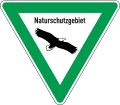The Official Municipality Key, formerly also known as the Official Municipality Characteristic Number or Municipality Code Number, is a number sequence for the identification of politically independent municipalities or unincorporated areas. Other classifications for the identification of areas include postal codes, NUTS codes or FIPS codes.

A Regionalliga is a regional league in numerous sports governing bodies in Germany, Austria and Switzerland, usually located in the upper or middle tiers of the sports leagues.
The Landesliga is a tier of football in some states of the German football league system.
This is a list of coats of arms of Germany.
Germany's federal system comprises 16 state parliaments, each including directly elected representatives.
Events in the year 2009 in Germany.
The Rugby Regionalliga is the third-highest level of Germany's Rugby union league system, organised by the German Rugby Federation. It is set below the 2nd Rugby-Bundesliga and is organised in eight regional divisions.
The Länderpokal is the oldest cup competition of the German Football Association. It came into existence as the Kronprinzenpokal but has changed its name various times since. The cup is held annually at the Sportschule Duisburg-Wedau. Contestants in the cup are teams of the 21 regional football associations, composed of youth players from that area. Also guest teams are invited each year since 2005, which play in the competition but will not be awarded a place in the final standings.
Concordats between the Holy See and individual German states were concluded both before and after the unification of Germany in the 1870s.
The Conference of Minister-Presidents is a committee formed by the sixteen States of Germany (Bundesländer) to coordinate policy in areas that fall within the sole jurisdiction of the Länder, e.g. broadcasting. The conference is not a constitutional body, therefore formal agreements between the federal states are fixed in a Staatsvertrag (treaty/compact). Since the MPK itself is not an official constitutional body, its meetings are purely informal, coordinating in nature. Similar bodies also exist at the level of the specialist ministers
In the run up to the 2017 German federal election, various organisations carry out opinion polling to gauge voting intention in Germany. Results of such polls are displayed in this article.
The Police of Germany may refer to one of a number of German law enforcement agencies.
Alte Burg, Alteburg or Burgstall Alte Burg refers to the name or nickname of various castles, castle ruins, castle sites and hillforts or ringworks:
Richterwahlausschuss is the name of bodies in the German judicial system that elect the judges of the ordinary courts and the special courts on the federal level (Bundesebene) and in some cases also on the level of the states (Landesebene).
The Minister-president is the head of state and government in thirteen of Germany's sixteen states.

This is a breakdown of the results of the 2017 German federal election. The following tables display detailed results in each of the sixteen states and all 299 single-member constituencies.

The list of German municipal flags lists the flags of municipalities of Germany. Most municipalities of Germany have unique flags.







